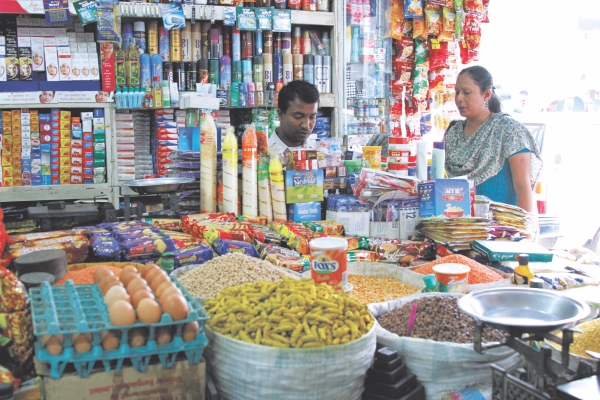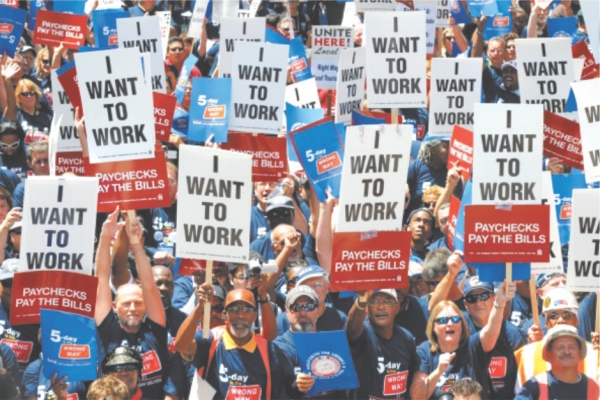| Home - Back Issues - The Team - Contact Us |
 |
| Volume 11 |Issue 09| March 02, 2012 | |
|
|
Impressions
Jest in Hard Times Shah Husain Imam Americans can keep their wits around them in difficult times. This is as true for the victim as it is for the narrator. A CNN duo chatted hilariously on a prime time show about how their fellow countrymen were coping with hard times. One said, "Women buy more lipsticks when cash-strapped because they cannot afford shoes or clothes which have become far too expensive." This finds a coy expression as they stack their handbags with lipsticks of usually deeper, yet brighter hues. Their panache and sense of glamour are down to an irreducible minimal jest in hard times. Perhaps they feel like putting a nice, sweet smile on their faces as though sweeping aside the spikes in their harsher daily grind. Men go crazy for bikes, T-shirts (away from wintry clime), low-end walking shoes etcetera. They have suddenly become overly health conscious as though atoning for the gourmet they had indulged in good times. On this side of the Atlantic too, big malls have shrunken with outlets for expensive fashion items including clothes, shoes, cosmetics and leather bags shuttering down. Only food and beverage corners are doing any brisk business. Eating out in restaurants usually for pleasure is diminishing. Even then, a sliver of fiesta can be seen staving off negative feelings. Ingenuity is at play in the manner ordinary folks are going about turning hardship into an opportunity for social service.
In British, Scottish or Irish villages, small fetes and fairs are being organised as social get-together events (somewhat distinguished from the pub culture). The other purpose is putting on display a wide range of local products including handicraft and home-baked confectionery. The business helps people as they share the joy of communion. Even older men and women are organising midnight runs to raise funds for varied philanthropic causes including for cancer research and treatment. Lifestyle changes can be painfully drastic for young couples. Many of them now jobless or with reduced salaries are limping in the face of high costs of living. They have abandoned their hired apartments to live in a single room, that too, flooring with a newborn child. The retired with severely reduced pensions are worse off, hurtling to fend for themselves, let alone part any petty cash to their unemployed children. The doles from the state too have been cut back on. More serious is the plight of those who have failed to make mortgage payments losing out on their ownership of houses and with that the potential option to move to better houses, making money on the sides. The forfeited houses now on sale at throwaway prices are beyond the means of many to buy up -- a double-edged irony that. Air travel is having a lean time with a decline in tourism. Civil aviation industry is hard hit by the economic downturn. People are taking to other modes of transportation such as railway, road and shipping liners. Bangladeshis have earned a name for being a resilient nation, an appellation earned for their survival through natural calamities and roller coaster ride through political vagaries. Now the ordinary people in the West are showing their resilience and capacity to take pains. In their context though, greed capitalism, high and environmentally hazardous lifestyles and living beyond one's means have had the bubble burst as saving, close-to-nature-living and wealth creation were undermined as a philosophy of life. We can't be vicarious at the plight of the people of advanced countries. To echo Nobel Laureate Amartya Sen, any one country has something to learn from another. This is thus a learning process for them as much as it is for us in a complementary sense. Our luck may have held for a long time but we do have a serious stake in their economic recoveries. The knock-on effects of a global downturn have started impacting on our economy; lest these sink deeper in our mainstream economy, the government should see wisdom in frugality which the Cameron government in England is practicing with rigorous discipline. Our lifestyle too is adjusting to rising costs of living. The middleclass in particular have dropped many items from their shopping list, their food menu has been slashed to bare essentials. On a lighter (or is it?) note, the ubiquity of foods injected with formaline or other toxins, have forced us to discard most fruits barring the exotic variety that used to be confined to the wilderness. Now they have appeared in the metropolitan market place. Can we, moreover, forget, the plight of those millions of children who go to bed unfed or half-fed along with their parents? It's time we had British-style fetes and fairs to help them with a part of their sale proceeds. Droplets of Samaritan deeds will add up to the safety net, the state must be trying to spread across. The writer is Associate Editor, The Daily Star.
Copyright
(R) thedailystar.net 2012 |

